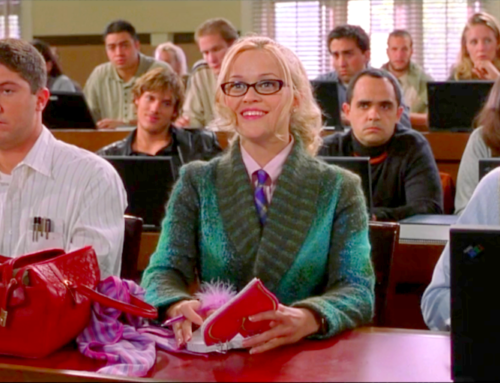Image Credits: Shutterstock
According to the Department of Justice, sexual harassment can be any activity that “creates an intimidating, hostile, or offensive work environment for members of one sex, whether such activity is carried out by a supervisor or by a coworker.” Common examples of sexual harassment are telling sexually-oriented jokes, sexual remarks or teasing, sexual advances, unwelcome touching, or pressuring an employee for dates. The United States Equal Employment Opportunity Commission, or EEOC, states that offhand comments, light teasing, or isolated incidents are not prohibited under the law, but it becomes harassment when these actions are too frequent or severe. USA Today reports that one in four women experience sexual harassment on the job. That number could be even higher due to unreported incidents.
This issue made headlines in 2016, and recently, when a slew of women, including Andrea Tantaros, sued Fox News, claiming that they were sexually harassed by then-CEO Roger Ailes, and other high level staff, while on the job. According to Tantaros, Ailes asked her about her workout routine because “she looked good” and would probably look good in a bathing suit, too. Tantaros went on to file a complaint. She was told not to fight this because “Roger is a powerful man.” She was not the only Fox News employee to speak out about the alleged sexual harassment that has happened at Fox including Gretchen Carlson, Tamara Holder, and most recently, Julie Roginsky.
RELATED: I Didn’t Think It Could Happen To Me, But It Did: I Was Sexually Assaulted My First Week Of College
Sexual harassment, even in the smallest form, is unacceptable in the workforce. Comments like the ones made toward Tantaros and others, among other inappropriate actions, are illegal under Title VII of the Civil Rights Act. No one has the right to make you feel uncomfortable while you are trying to do your job and earn a living. No one, male or female, should not have to be put in a situation where they have to put the fear of losing their job over being treated with respect.
Here is what you should do if faced with sexual harassment on the job.
1) Speak up, and document everything. Let the perpetrator know that his or her behavior is not okay and should cease immediately. Assert yourself and let this person know that you will not tolerate inappropriate comments, solicitations, or unwelcome hands. Even if the harasser is higher up the ladder than you, this should not deter you from telling him or her that such actions are wrong and illegal. If you can, make a log of any inappropriate conduct that happens on the job, including the times, dates, and descriptions of the incidents.
2) Tell someone. If your harasser does not take no for an answer, tell someone. One of the worst things you can do is remain silent. By not speaking up, you are only giving the signal that the perpetrator’s behavior is okay and can continue. It could also encourage this person to find another victim. By telling a coworker or supervisor, you would be not only protecting yourself, but possibly other co-workers who may be vulnerable. Even just by talking to a friend about the incident, it could calm your nerves and help prepare you to take the next step.
RELATED: 10 Things I Wish I Could Tell My Rapist
3) Report it. If the behavior continues, report it. Go to your supervisors and tell them what is happening and for how long. This is where the incident log comes in handy. You can use it to prove that the perpetrator is creating a hostile environment, which could result in disciplinary action. By reporting sexual harassment, you are not only helping yourself, but helping to create a healthier work environment.
No one should have to dread going to work at what could possibly be his or her dream job just because another individual thinks that sexual harassment is okay. If someone makes a comment about you that makes you uncomfortable, that is harassment and it can be illegal. If you are being sexually harassed at work, do not be afraid to come forward. If more people come forward and report their harassers, no matter how powerful they may be, it can change the climate in the office and bring about healthy change for both men and women in the workforce.
Melissa B
CONTRIBUTOR
Melissa is a young conservative navigating the world of post-grad one cup of coffee (or glass of wine) at a time. When she isn't volunteering on campaigns up and down the ballot in deep blue Maryland or trying to get selfies with politicians, you can find her reading, cheering on the Ravens, or hanging out with friends.













